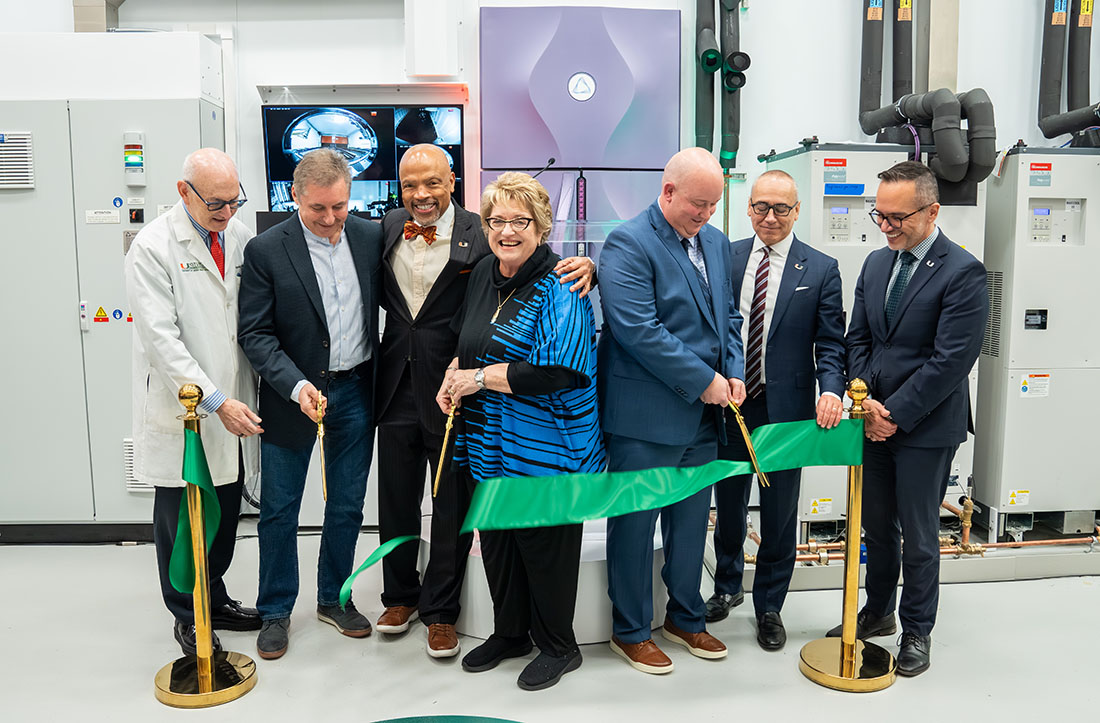By: Chad Hanson | September 04, 2025 | 6 min. read |

Summary
A new study from the University of Miami Miller School of Medicine explores how the APOE and ABCA7 genes interact to influence the age at onset of Alzheimer’s disease in individuals of African ancestry.
The researchers analyzed data from 3,510 African-ancestry individuals, including Alzheimer’s disease cases and cognitively healthy individuals.
The study offers insights into how genetic variation shapes Alzheimer’s disease and may lead to new approaches to treatment and prevention.
A new study from the University of Miami Miller School of Medicine explores how two genes—APOE and ABCA7—interact to influence the age at onset of Alzheimer’s disease in individuals of African ancestry.
This research was led by:
• Senior author Margaret A. Pericak-Vance, Ph.D., director of the John P. Hussman Institute for Human Genomics and Dr. John T. Macdonald Foundation Professor of Human Genetics
• Senior author Farid Rajabli, Ph.D., assistant professor of human genetics in the Dr. John T. Macdonald Foundation Department of Human Genetics
• Bilcag Akgun, MD, Ph.D., assistant scientist of the John P. Hussman Institute for Human Genomics
They led a global team of collaborators in a project that offers critical insights into how genetic variation shapes Alzheimer’s disease and may lead to new approaches to treatment and prevention.
APOE, ABCA7 and Alzheimer’s Disease
The APOE gene is the strongest known genetic risk factor for Alzheimer’s disease, an association identified by Dr. Pericak-Vance and colleagues in 1993. The ε4 allele of APOE (a version of the gene) increases the risk of Alzheimer’s disease and is associated with earlier age at onset, though its effect varies across populations.
 Dr. Margaret Pericak-Vance originally identified the APOE gene as the strongest known genetic risk factor for Alzheimer’s disease.
Dr. Margaret Pericak-Vance originally identified the APOE gene as the strongest known genetic risk factor for Alzheimer’s disease.
Researchers at the Hussman Institute have previously identified a missing segment of DNA specific to African ancestry in another gene, ABCA7, which is associated with increased Alzheimer’s disease risk.
“ABCA7 and APOE are both involved in lipid metabolism, which is important for brain function and Alzheimer disease pathology,” said Dr. Akgun.
This study investigates whether these two genetic factors interact to influence the age at onset of Alzheimer’s disease.
Study Methodology
The researchers analyzed data from 3,510 African-ancestry individuals, including Alzheimer’s disease cases and cognitively healthy individuals. Participants came from several large cohorts within the Alzheimer’s Disease Sequencing Project (ADSP) and partner initiatives.
 Dr. Margaret Pericak-Vance (center) at the ribbon cutting for the Hussman Institute biorepository, which played a significant role in the ABCA7 study.
Dr. Margaret Pericak-Vance (center) at the ribbon cutting for the Hussman Institute biorepository, which played a significant role in the ABCA7 study.
The team examined how interaction of APOE e4 and the ABCA7 deletion influenced age at onset of Alzheimer’s disease using survival analysis models.
Key Findings
The research team made a number of enlightening discoveries. They found that among individuals who carry the APOE ε4, those with the ABCA7 deletion tend to develop Alzheimer’s disease at an earlier age than those without the deletion. This suggests a possible interaction between the two genes that may accelerate disease onset. Interestingly, the effect was more noticeable in women.
For Dr. Akgun, the discovery sets the stage for what comes next.
“People who carried both the APOE ε4 and the ABCA7 deletion developed Alzheimer’s disease about five years earlier than those with only the APOE ε4,” he said. “Understanding such gene-gene interactions helps reveal the biological mechanisms that drive Alzheimer’s disease and can guide the development of targeted therapies.“
“This study also emphasizes the importance of a global approach to understanding Alzheimer’s disease and will facilitate our understanding of differential ancestral effects on Alzheimer’s disease risk resulting in improved universal diagnosis, treatment and prevention,” said Dr. Pericak-Vance.
Future Research
The next step for the team at the Hussman Institute is to perform functional studies that will help explain how the interaction between ABCA7 and APOE influences brain biology and contributes to Alzheimer’s disease development. A new biorepository at the Hussman Institute will supply high-quality, biological samples from a broad range of participants to support these efforts.
“Our goal is to translate genetic discoveries into biological understanding of Alzheimer’s disease,” said Dr. Akgun. “That’s how we move closer to targets for treatment.”
Microsoft Copilot contributed to this article, which was reviewed and approved by Dr. Pericak-Vance and Dr. Akgun.
Tags: Alzheimer’s disease, APOE gene, cognitive decline, Dr. Bilcag Akgun, Dr. Farid Rajabli, Dr. John T. Macdonald Foundation Department of Human Genetics, Dr. Margaret Pericak-Vance, genetics, genomics, John P. Hussman Institute for Human Genomics

